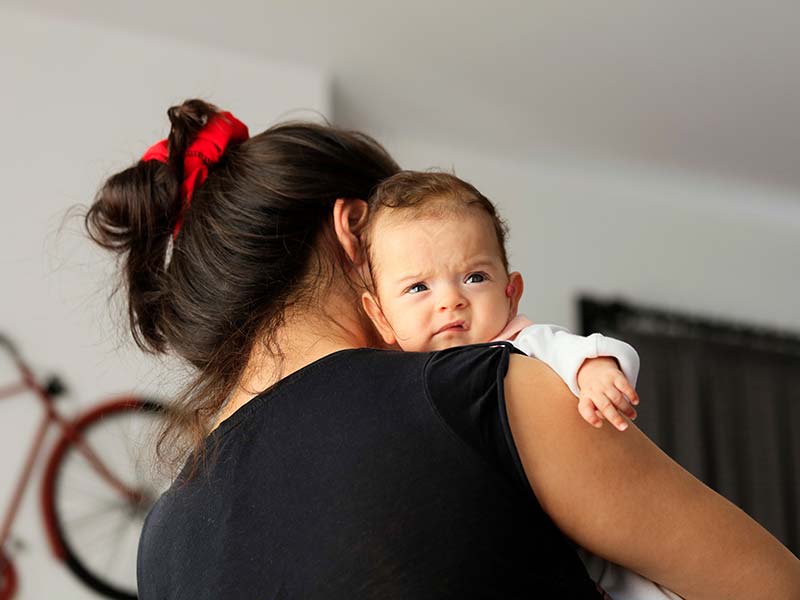Does Sleep Training Cause Separation Anxiety?
How long does it last?
The purpose of sleep training our little ones is to help teach them how to self soothe. By the end of it, our tough sleepers can become the best of sleepers. During this process, one of the biggest concerns that a lot of parents have is that sleep training is linked to separation anxiety.

Well, it is, and it isn’t. It all boils down to a couple of things:
- The temperament of your baby
- How dependent your baby is on you to fall asleep.
When you are putting your baby to sleep, whether it be co-sleeping, rocking, or feeding to sleep, they are constantly near or on you. If this has been your baby’s way of falling asleep at night and naps, say for 6 months, and then you’re completely changing where and how they are falling asleep, wouldn’t it make sense that they would struggle with a bit of separation anxiety? Absolutely!
Not all babies go through it. If you have a chill baby and they roll with the punches better than a baby that is higher strung, they will sail through this process. However, a baby that is higher strung will have a higher chance of having separation anxiety.
What are the signs of separation anxiety?
- They will not want you to put them down or leave the room while they are awake.
- They will struggle to fall asleep on their own.
- They will not want to be passed off to dad or anyone else.
- Increased fussiness during the day.
- They are easily set off. The simplest thing can cause them to melt down.
How long does separation anxiety last?
While separation anxiety is hard on you and your little one, the good news is that it does not last very long. As they get used to the new way of falling asleep the separation anxiety will dissipate-usually only a couple of weeks. The calmer you are during this whole sleep training process the quicker your baby will catch on to falling asleep on their own.
There are some things that you can do to help ease the separation anxiety:
- Spend a lot of quality time with your baby during your awake time, but don’t always hold them. Put them on the floor and sit beside them while the two of you play together. This shows your baby that they can be ok on their own and that they don’t always have to be in your arms to feel safe.
- Sit in the room with your baby while they are learning to fall asleep if possible. If your presence aggravates your baby more, then leave the room and do regular check ins as needed. This shows your baby that you are close by when they need you while they are given the chance to learn this new skill.
- Get your baby used to being left with members of the family aka dad, or older siblings of babysitting age, grandma, or someone they know well. This helps them to get used to not always needing to be with you. Every time you come back your baby will be assured that just because you are leaving, it doesn’t mean for good. This helps with sleep training and also helps them form healthy bonds with other members of your family.
While sleep training can cause a little bit of anxiety, the end result is a full night’s rest and a happy and healthy little.



